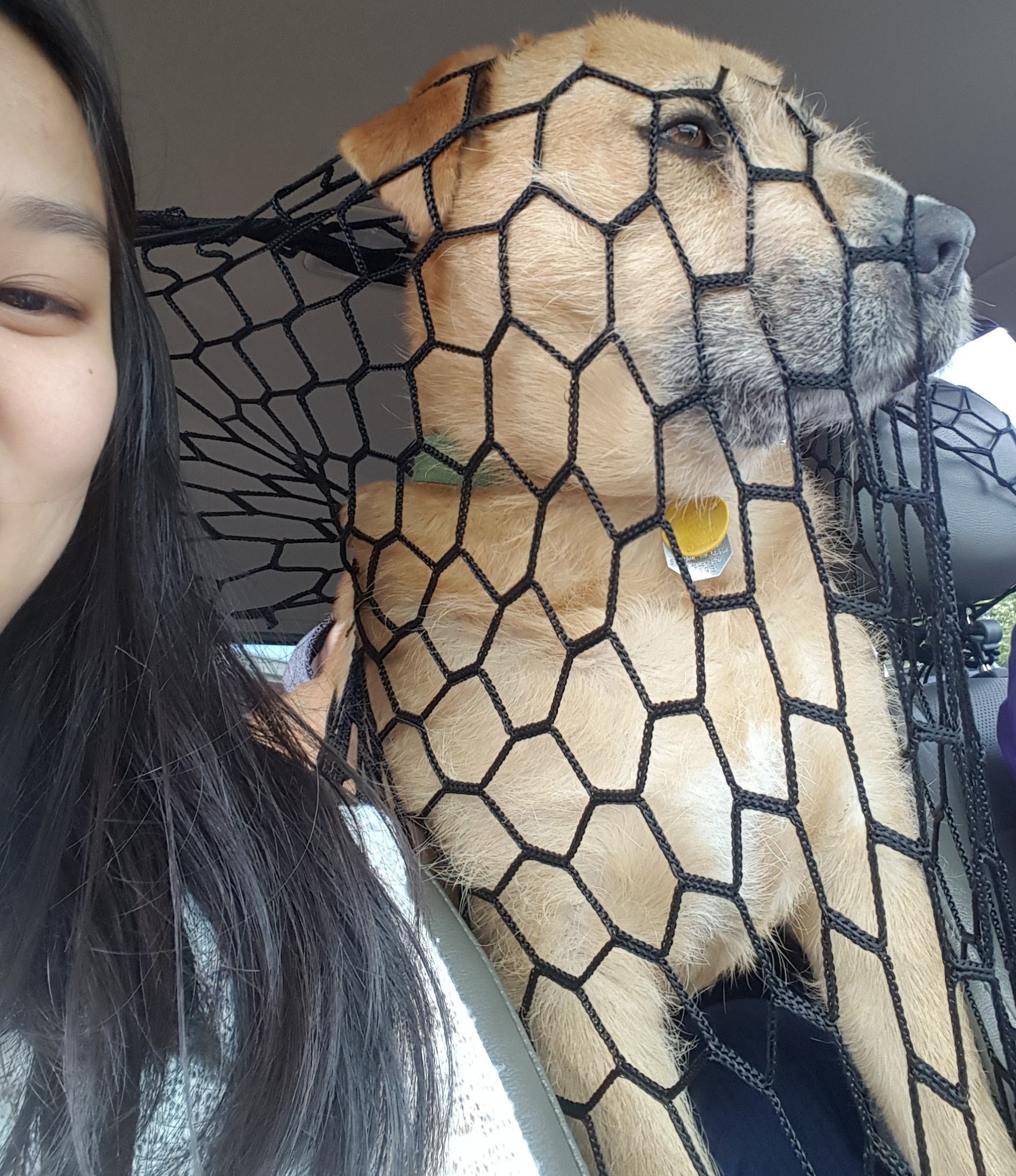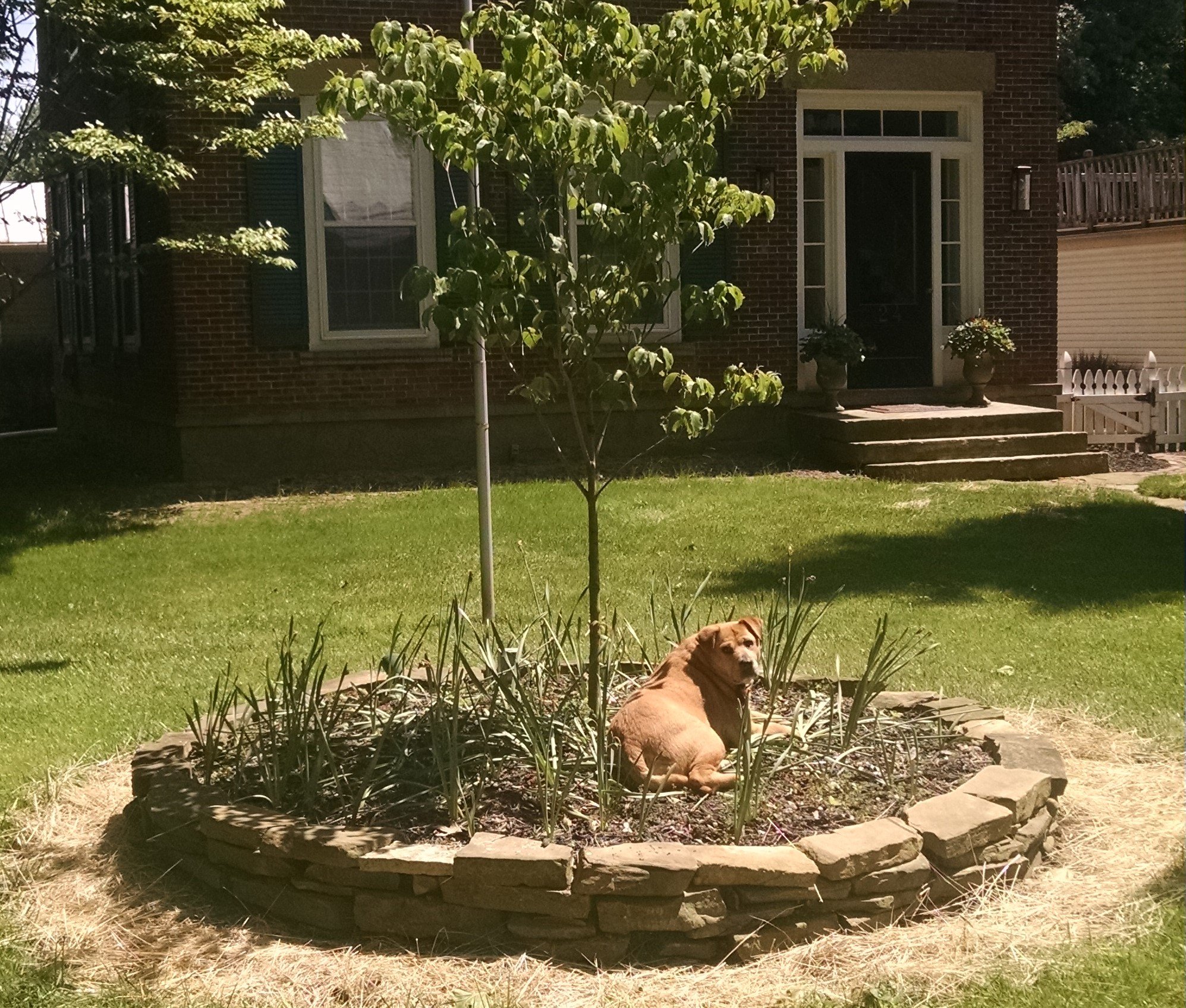This Dog
I insisted I did not want another dog.
I’ve owned several, all different—from rascal to renegade to royalty. I’d seen them through seizures, surgeries, and illnesses, cradling and carrying them to the finish.
But Maggie wanted a dog. I agreed.
Settled in St. Paul and yard fenced, we searched a shelter’s online listings.
There she was.
This dog.
Maria.
Her soulful eyes whispered, Believe in me.
I called the shelter and learned assistant, Maggie L., often traveled north to the Red Lake Reservation, collecting their rescues who could find homes in the Twin Cities. On one trip, she was loaded but noted a dog with irresistible eyes watching her. Maggie L. went in to ask about her.
Maria had been found with two puppies at the dump. The pups were fine, but Maria was skin and bones. Maggie L. agreed to nurse her back to health.
It worked. She told us Maria was gentle but determined. “She’ll have what she wants,” Maggie L. said. “You can’t stop her when her heart is set on something.”
That was undeniably true. Maria was a front-seat passenger who needed to see into the distance. We’d put her in the backseat, but the second we weren’t looking, she slipped up front. We installed a webbed barrier. Unable to pass through it, she wore it, pressing forward inch by inch. Next we tried a canvas contraption that worked until she gradually forced the zipper down far enough for her head to rest on the console so she could “sort of “ be upfront.
When Maggie went to college, we moved to a house with a picket fence, and Maria became my constant companion. We were outside a lot that first year, with her chasing squirrels and standing up at the fence, peering ahead. She watched me fuss with the raised circle garden’s daffodils. At spring’s end, I clipped the flowers and began weeding. Maria seized her moment, settled on the cool greenery, and claimed her place. I can’t explain how she knew to stay out of the blooming daffodils. She just did.
Maria knew all kinds of things—like the significance of my desk. Sometimes Cliff called out, “Maria’s ready for you to write a story.” There she’d be, waiting by my chair. I’m a reluctant writer, working in fits and starts, walking away for weeks, discouraged. Maria knew my pattern. When I’d been absent long enough, she planted herself in my office, watching me with her patient, persistent brown eyes until I was seated.
And when those watchful eyes were blinded by cataracts, I agonized. Two vets said surgery was incredibly costly and that she’d adjust by learning these commands: Step and Careful. Maria sensed when Step meant up or down. She stopped for Careful, waiting for direction. I found a field where she walked off-leash. If she got too far ahead, she’d pause, listening for me, no longer able to see me. Our scientific friend Dave, who has spent decades trying to help me understand gravity is not magic, explained the whole eye-surgery process that would restore her vision. I was on a mission, expense be damned.
We drove her halfway across the state to an ophthalmologist who adored her immediately, touched by her sweet nature. Yes, she could fix Maria’s vision, but tests revealed other issues. Her thyroid was malfunctioning, and she was diabetic, so that had to be controlled, along with a cholesterol problem. Qualifying for surgery meant clearing major obstacles.
She did.
On our first walk after the procedure, Maria froze and sat down on the sidewalk. She could see for herself. She’d look into the distance and up at me. Several times she repeated this miraculous moment, eventually heading for the town square, her favorite destination that our walks had avoided for so long.
Her life was bliss for several years more until I noticed changes.
Instead of walking to the square, she’d stop at the post office and head back home.
Instead of chasing squirrels, she watched them.
Instead of eating breakfast, she’d turn away.
She no longer stood up at the fence.
I’d find her wandering the house at night, requiring comforting to return to bed.
Her life grew smaller. More fitful.
An x-ray revealed the worst with six months at best, whatever we did. A sympathetic vet tech shared the story of her dog who had received the same diagnosis. Despite heroic measures, her dog collapsed in a tragic ending. She said, “You do not want that end for Maria.”
Explaining the news to Maggie was terrible, complicated by the fact that Cliff was, at that very moment, in surgery to repair heart damage. “This might not be the worst moment in your life, but you will remember it forever,” I told her. She’d stopped at the house on her way to the hospital and had noticed the change in Maria, who had not risen to greet her. I explained that harder changes were ahead. While we’d saved her from many challenges, this one was too big. Maria’s life would unravel into something she could not recognize, no matter what we did. “It’s best to spare her from that fate by taking the pain of losing her now.”
While I was at the hospital with Cliff, Maggie and Maria had a last spree. They visited the drive-thru and shared a few fries, with Maria in the front seat, of course. That last night Maggie slept on the sofa beside Maria, who finally slept soundly.
In the morning, Maria and I set off on our customary stroll. She walked effortlessly to the square and back.
At the vet’s office, she settled on her blanket, just like at home, with Maggie and me beside her, petting her, reminding her that she was good and brave.
And Maria dozed off like she would on any other day, knowing she might wake to her heart’s favorite things.
The clink of Cliff’s bowl offering the last traces of oatmeal.
The silken sweep of Maggie’s hair across her face when she stooped to brush her.
The jingling of a leash as I approached for another walk to the square.
The pet I didn’t want.
The furry metaphor who showed me the power of patience and persistence when I couldn’t see it for myself.
Believe in her, I did.
This dog.
Maria.




